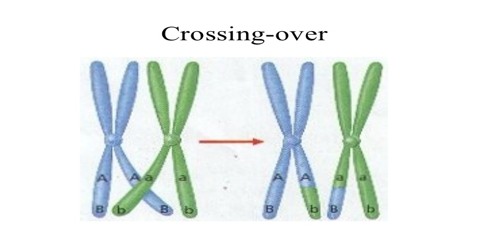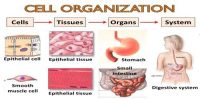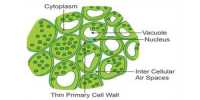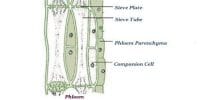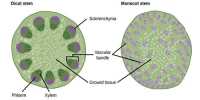Crossing Over
The special process of cell division by which part exchange takes place between the non-sister chromatids of homologous chromosomes is known as Crossing-Over. Chromosome gets the new arrangement of genes. The main function is to exchange genes between homologous chromosomes, resulting in a mixture of parental characteristics in offspring. Crossing over of genes is a big factor in the genetic diversity of living things. Here we will define the process of crossing over, and further, explore the mechanism behind it.
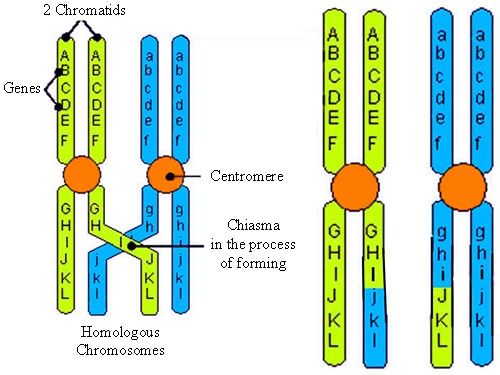
Fig: Crossing Over
Types of crossing-over:
On the basis of the number of chiasmas, crossing-over may be of two types-
- Mono-crossing over and
- Di-crossing over
Mono-crossing over: In this case chiasma is formed only in a single point.
Di-crossing over: In this case chiasma as formed in two different points.
Importance of Crossing Over
- The part exchange occurs in between the homologous chromosomes coming front the parents. This part exchange results in the changed characteristics in the new generation.
- Crossing-over brings about variation in the new generation which accelerates the formation of new species through evolution.
